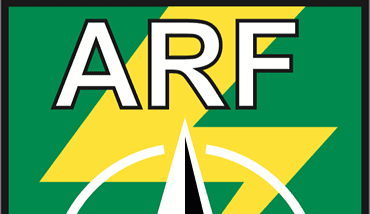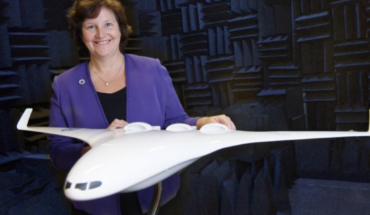AI-enabled drug design, fibre-reinforced concrete and high-temperature components for fusion power plants are among the research challenges being addressed by three new Research Chairs and three new Senior Research Fellows funded by the Royal Academy of Engineering. Focusing on industry-relevant research across the full range of engineering disciplines, the Academy’s Research Chairs and Senior Research Fellowships enhance the links between academia and businesses with each of the prestigious five-year positions co-sponsored by an industrial partner.
Professor Karen Holford FREng CBE FLSW, Deputy Vice-Chancellor at Cardiff University and Chair of the Academy’s Research Committee, says:
“The Academy programmes promote engineering excellence in the UK and enable strategic partnerships with industry. I am delighted to welcome these leading researchers to join us. Working closely with their industrial partners, each awardee will establish a world-leading research group in their field of engineering that will ultimately help to generate real economic benefits.”
The new appointments are as follows:
Research Chairs
Professor Adam Clare, University of Nottingham
Rolls-Royce / Royal Academy of Engineering Research Chair in Miniaturisation of Electrophysical Techniques for Next Generation On-Wing Repair
Professor Clare plans to develop technology to offer quick and easy repairs for gas turbine engines, which power aircraft around the world. Engines can be very expensive and time consuming to maintain, especially for unscheduled issues, because they often must be taken completely off the wing. Repairs are currently undertaken using a multitude of highly invasive techniques, but Professor Clare hopes to make technologies such as this portable through miniaturisation to work on engines in situ on the wing. He believes it will be applicable to the next generation of air travel, including electric planes and future propulsion systems.
He says:
“My journey as an engineer started with a Saturday job, helping my uncle to fix things up, welding, repairing machines or fixing broken trucks. Over time, I wanted new challenges and started playing with more sophisticated engines. I was fascinated by gas turbine engines – I think they’re beautiful, and it is remarkable how whole economies depend on them. What excites me most about engineering is that it never runs out – there’s always a new challenge to solve. Engineering advancements can and have changed the destiny of our species: through this award, I hope to contribute in my own way.”
Professor Lorenzo Iannucci, Imperial College London
Airbus / Royal Academy of Engineering Research Chair in Advanced Composite Design for Aircraft Structures
Professor Iannucci is working alongside Airbus to develop new Predictive Virtual Testing (PVT) techniques to support the development of the next generation of composite aircraft structures. PVT tools can be used to investigate optimum composite design procedures and predict the behaviour of composite materials, from the manufacture of composite laminates through to larger components and the detailed modelling of a whole aircraft. The investigation of composite materials and their impact on future novel aircraft concepts can thus be performed in a detailed virtual environment, scaling up to the full aircraft including joints. Such developments in virtual testing are essential to reduce the time required to develop new composite aircraft and their components.
He says:
“My first experience of Aeronautics was building balsa wood model aircraft; balsa wood being a very low cost composite material. It’s now very exciting to be involved in the development of advanced simulations tools, which could lead to fundamentally new structural wing designs using some of the latest composite materials and manufacturing techniques. It’s a fascinating time to be involved in such developments, especially with the continuous need to improve sustainability.”
Professor Kypros Pilakoutas, University of Sheffield
Twintec / Royal Academy of Engineering Research Chair in Innovative and Sustainable Fibre Reinforced Concrete
Concrete is the world’s most widely used construction material but its widespread use impacts heavily on the environment. Professor Pilakoutas’s work aims to improve the performance of large concrete industrial floors, reducing their environmental impact and automating the construction process. The main binder in concrete is cement, which shrinks when mixed with water during the hardening process. This can lead to cracks large enough to allow the ingress of water and chemicals that can damage the structure, and is the main cause of infrastructure deterioration. Professor Pilakoutas’s work will provide a better understanding of the process and how cracks can be controlled in a variety of concrete mixes with different binders, aggregates and reinforcements, including recycled materials. This will lead to better design guidelines and tools for assessing environmental impact and result in more sustainable, robust and durable structures.
He says:
“What fascinates me most about engineering is how changes in materials drive changes in structural form, and thus construction practices as a whole. The challenges facing the concrete industry are significant: not only do we still need to better understand material behaviour, but we need to demonstrate the sustainability of our solutions. This project will provide the design guidelines and life cycle assessment tools necessary to promote such solutions.”
Senior Research Fellows
Dr Richard Bourne, University of Leeds
Royal Academy of Engineering Senior Research Fellow in Digital Manufacturing and Discovery of Pharmaceuticals
Dr Bourne is developing new methods to optimise the discovery and manufacture of new medicines using automated reactors and chemical engineering techniques. Artificial intelligence and data are at the core of his research – the high-quality data generated by automated platforms may help future models to predict new medicines. His new proposal aims to develop and integrate artificial intelligence and machine learning controlled synthesis to accelerate the development of new drugs and support potential new treatments for diseases such as arthritis and cancers. As well as accelerating discovery and manufacture, Dr Bourne’s methods promote “clean growth” with less chemical waste that the more expensive, traditional drug discovery techniques.
He says:
“I’m very excited to partner with The Royal Academy of Engineering – the RAEng Senior Research Fellowships scheme provides incredibly flexible and generous support that will enable me to explore the breadth of processes for generating new molecules. This together with the post-doctoral collaboration I have with BioPharmaceuticals R&D at AstraZeneca will enable us to explore many more possible ways of generating and optimising potential new candidate drugs. The Academy’s network of engineers will help to ensure these new technologies are widely disseminated and can make the most impact on society.”
Dr Mahmoud Mostafavi, University of Bristol
UK Atomic Energy Authority / Royal Academy of Engineering Senior Research Fellow in High Temperature Fusion Engineering
Dr Mahmoud believes that fusion energy is achievable in his lifetime, and recognises that engineering innovation is needed to help harness the heat released by fusion to produce steam that can drive turbines to produce electricity. The structures required to withstand the high pressure induced by the coolant have high thermal stress gradients that cycle with the pulsation of the plasma. They are often made of dissimilar materials, each optimised for operation in a specific part of the reactor and then joined together using advanced welding techniques. Dr Mahmoud’s work aims to ensure the integrity and safety of the structures, to help make commercial fusion energy viable.
He says:
“I always wanted to see how things work, taking things apart and seeing how all the bits and pieces work! In recent years, two Royal Academy of Engineering Fellows have had the most influence on me: my PhD supervisor Professor David Smith, who sadly passed away a few years ago, and more recently Professor David Knowles, who taught me everything I know about high temperature engineering. Doing this work, with the goal of unlimited green energy for humanity, makes me feel I can make a difference.”
Dr Dinesh Pamunuwa, University of Bristol
Microchip Technology / Royal Academy of Engineering Senior Research Fellow in Zero-Leakage High-Temperature Electronics
Dr Pamunuwa aims to improve the reliability and efficiency of nanoelectromechanical (NEM) relays. His projects include a carbon-based electrode contact material that acts as a solid conducting lubricant and novel designs for memory and logic circuits. He believes emerging paradigms such as the Internet-of-Things (IoT), all-electric vehicles and more-electric aircraft require a higher temperature capability and energy efficiency than conventional transistors can provide. NEM relays do not leak current while switched off, and can potentially operate at temperatures over 300 °C. Electronics based on these relays could help to deliver the true potential of an IoT with integrated sensing and processing nodes using only scavenged energy. They could also enable more efficient electric aircraft and vehicles with lower greenhouse gas emissions.
He says:
“I got into engineering because designing and building something and seeing it work thrills me, whether it is hardware or software. My current research topic has the potential to deliver an alternative technology to transistors, coming back full circle to relay-based computing, originally envisaged by Charles Babbage 150 years ago! This project is driven by a need that other technologies cannot meet and I hope it will contribute to a more sustainable society.”
- £1m investment in geothermal pilot - 9th December 2025
- Is your doctor’s AI safe? - 20th November 2025
- New NYC ‘Liver ICU’ Lab Transforming Liver Disease Treatments - 24th October 2025



